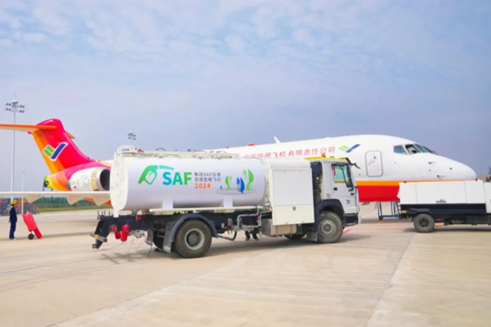"Heaven"! Key progress has been made in biofuels
After about one hour's flight, C919, a large domestic aircraft fueled with bio-jet fuel independently developed by China Petrochemical Company, landed smoothly at Dongying Airport. On the same day, the ARJ21 aircraft independently developed by China successfully completed the test flight of bio-jet fuel at Shanghai Pudong Airport.

The bio-jet fuel injected by Comac this time is processed from waste oil after meals commonly known as "gutter oil". The biggest difficulty in producing bio-jet fuel from " gutter oil " is that waste oil contains a large number of fatty acid compounds with high oxygen content, and oxygen molecules directly affect the activity and stability of catalysts in refining and chemical plants. This test flight filled the blank of domestic bio-jet fuel in domestic models.

Bio-jet fuel is aviation kerosene produced from renewable resources such as animal and vegetable oils and waste oil after meals, which belongs to sustainable aviation fuel. Compared with traditional jet fuel, bio-jet fuel can reduce carbon emissions by more than 50% in the whole life cycle, which has become the main direction of global aviation carbon emission reduction. In response to global climate change, the International Air Transport Association (IATA) proposes that the global air transport industry will achieve zero carbon emissions in 2050. According to IATA statistics, from 2008 to the end of 2023, there were more than 45 airlines in the world, and 370,000 flights used bio-jet fuel. At present, the United States, Canada, Norway and other countries have formed a large-scale aviation biofuel market and established a complete industrial chain of "Raw Materials-Refining-Transportation-Filling+Certification". IATA predicts that by 2025, the global sustainable aviation fuel consumption will reach 7 million tons; It will reach 20 million tons in 2030. Based on the current annual consumption of more than 30 million tons of jet fuel in China, if all of them are replaced by bio-jet fuel, about 55 million tons of carbon dioxide can be reduced a year, which is equivalent to planting nearly 500 million trees.
